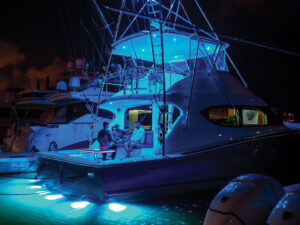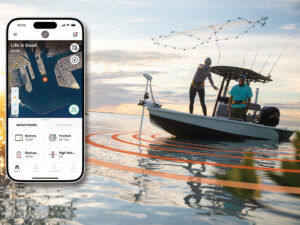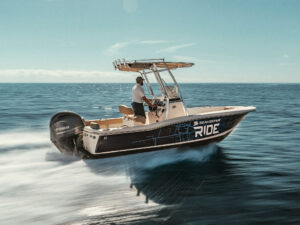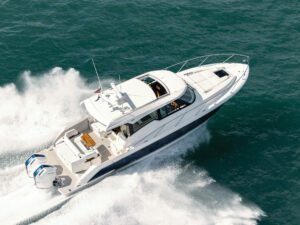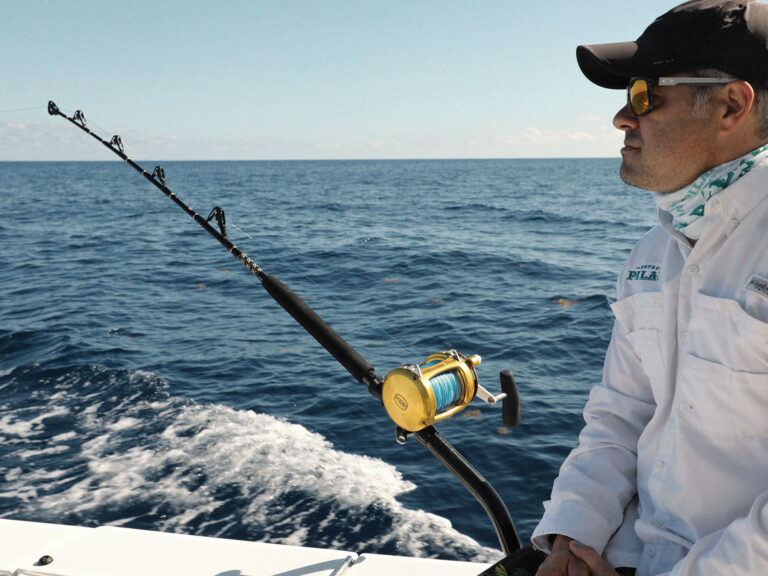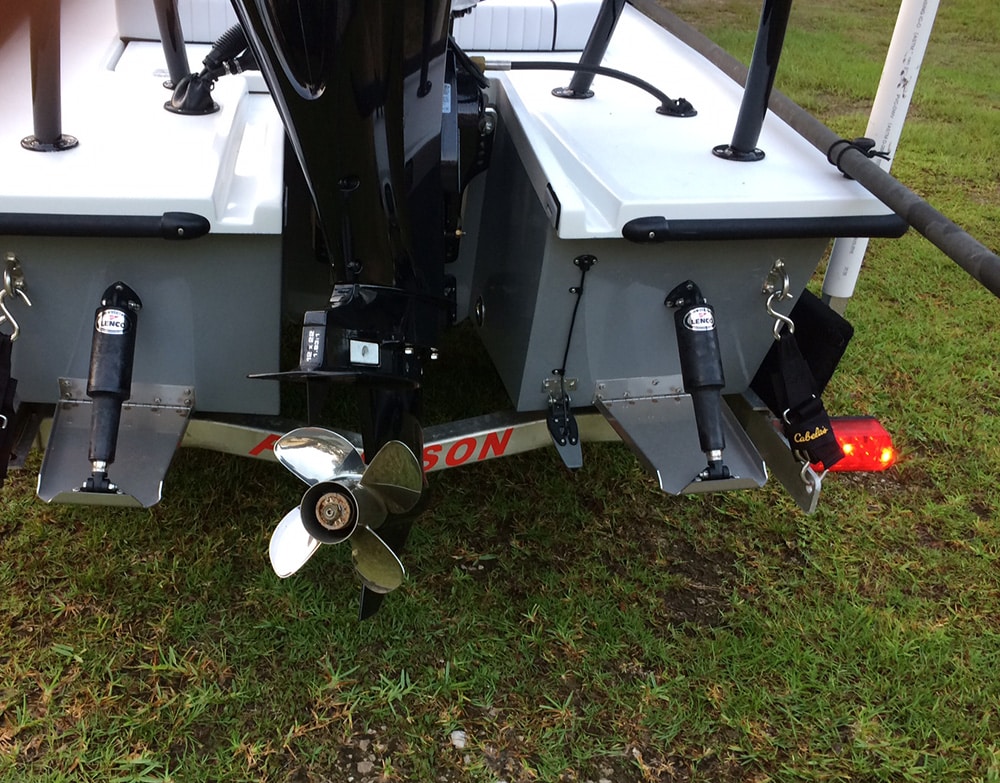
There’s no quicker way to ruin a long-planned fishing trip than to break down on the side of the road with a trailer issue. Regularly adding waterproof grease to the hubs will help prevent one of the most common failures. But there are other simple checks that can be done to ensure the launch goes as planned.
Safe and Secure
Back-up cameras or a fishing buddy will ensure proper alignment to connect the trailer to the tow vehicle. The coupler should securely close around the hitch ball and lock into place. A padlock will keep potential thieves honest and also prevent accidental un-couplings. Safety chains or cables should be crossed and securely fastened to the receiver connections. Crossing the chains will keep the trailer tongue elevated in case there is an unexpected failure. Plug the trailer light connection into the receptacle.
Be visible
Once the trailer is hooked up, do a quick check to make sure tail and sideboard lights are illuminated. Don’t forget about brake lights and turn signals, either. Getting rear-ended or an expensive ticket is never a good way to start or end the day.
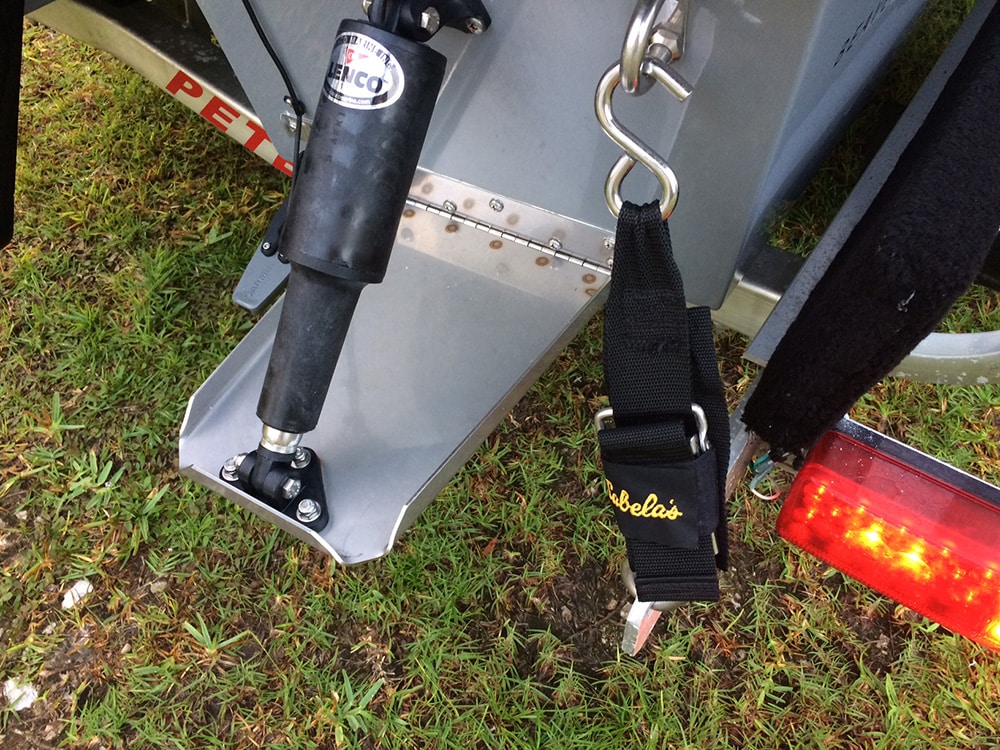
Locked in Place
Make sure the trailer bow strap is securely fastened, along with the bow eye safety chain(s). The strap should be snugged up to the bow roller. Transom straps should also be tight to keep the stern from bouncing on the trailer while on the road.
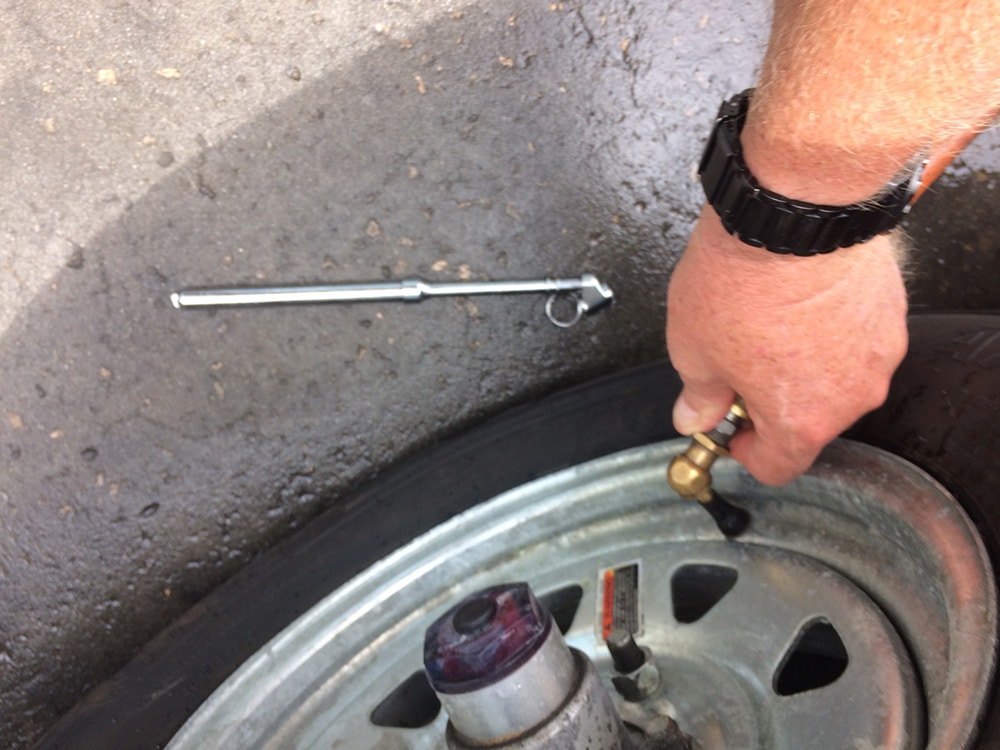
Pressure Point
One of the biggest trailering problems is tire failure. All tires on the trailer should have good tread and be properly inflated. Check the factory recommendations on the tire sidewalls and inflate to the correct pressure. Try to add air only when the tires are cool. And don’t forget to check the spare tire(s) too. When it comes time for replacement, consider radial tires for better wear and a softer ride.
Stay Legal
Make sure the trailer registration is current and with the vehicle paperwork for easy access. Keep the insurance contact information and roadside assistance number handy, too.
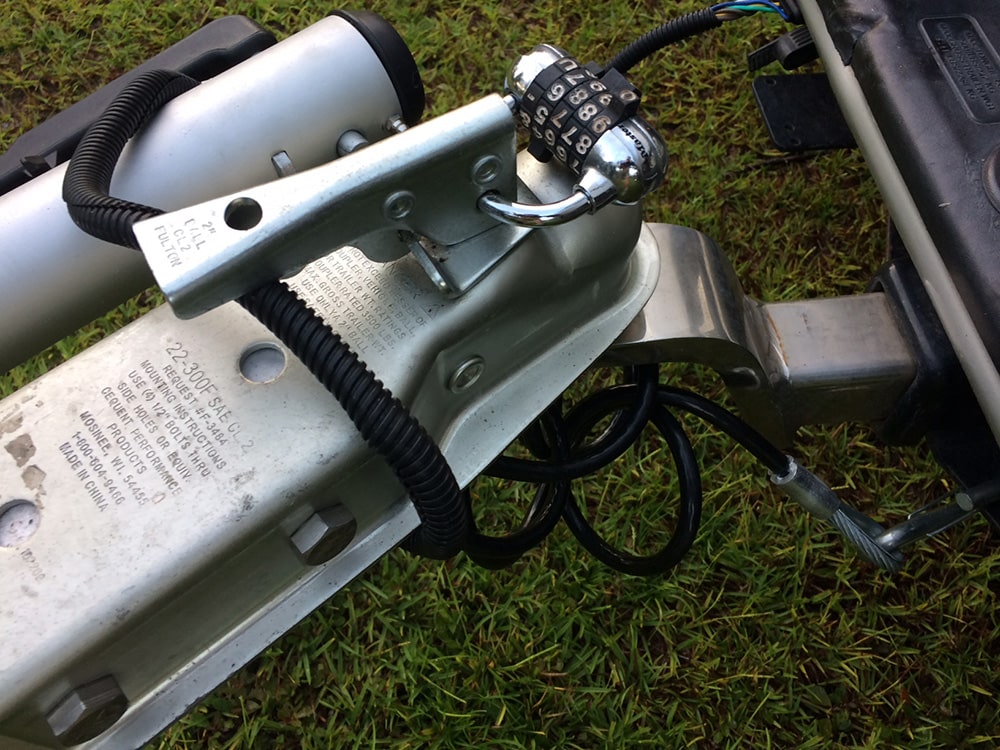
Seasonal Checks
Besides routine rinsing with fresh water after every briny dunking, it’s not a bad idea to inspect the trailer periodically throughout the season. Look for any developing rust or corrosion, strap integrity or loose hardware. Follow these simple checks and you’ll spend less time on the road and more time on the water.

